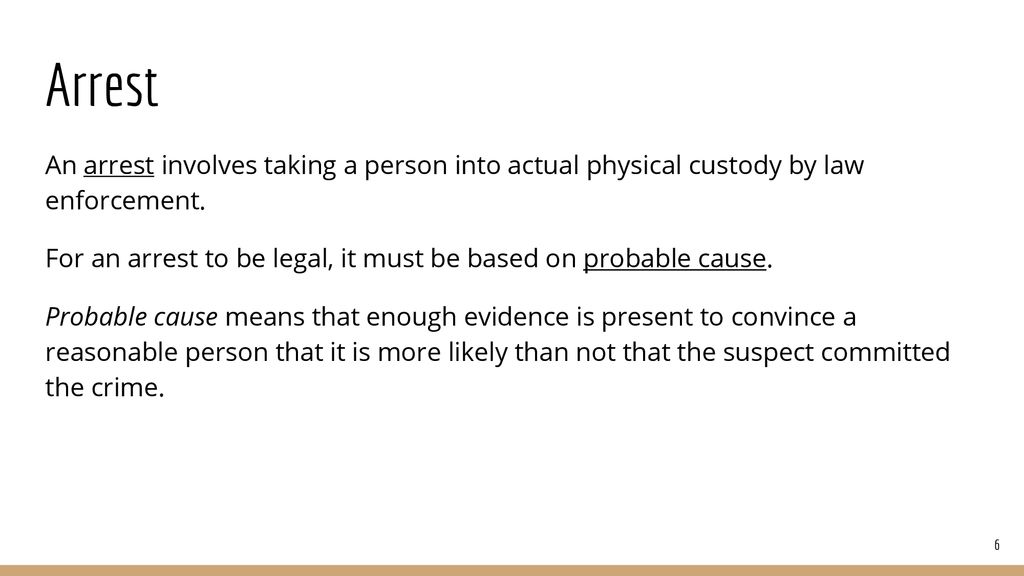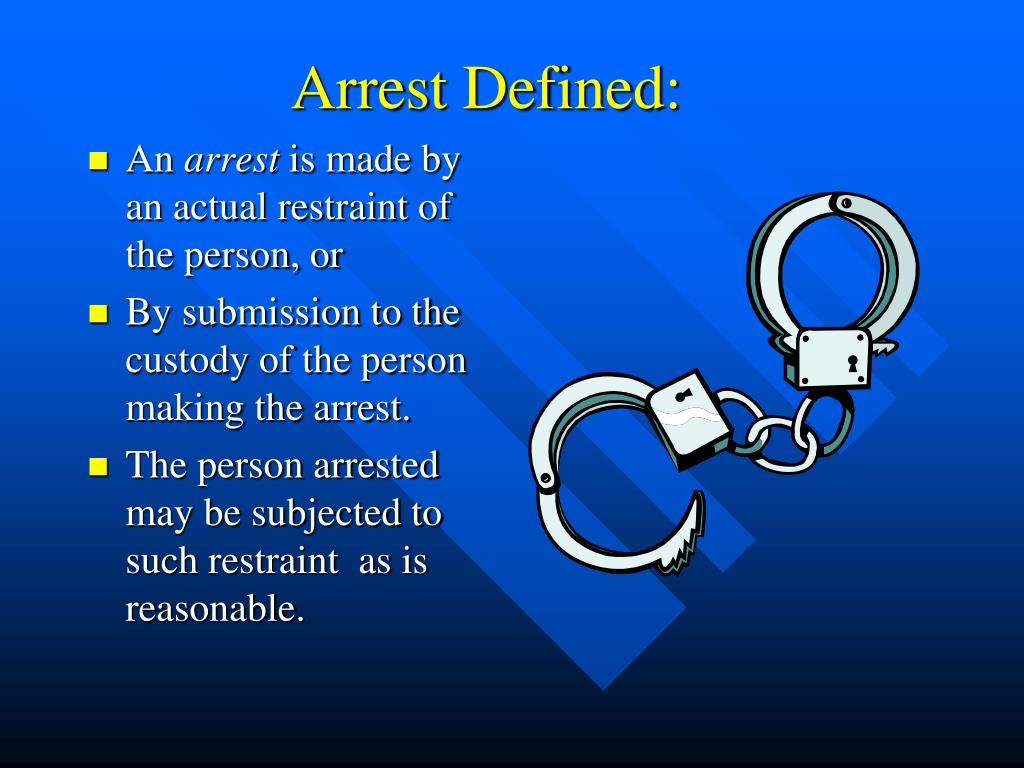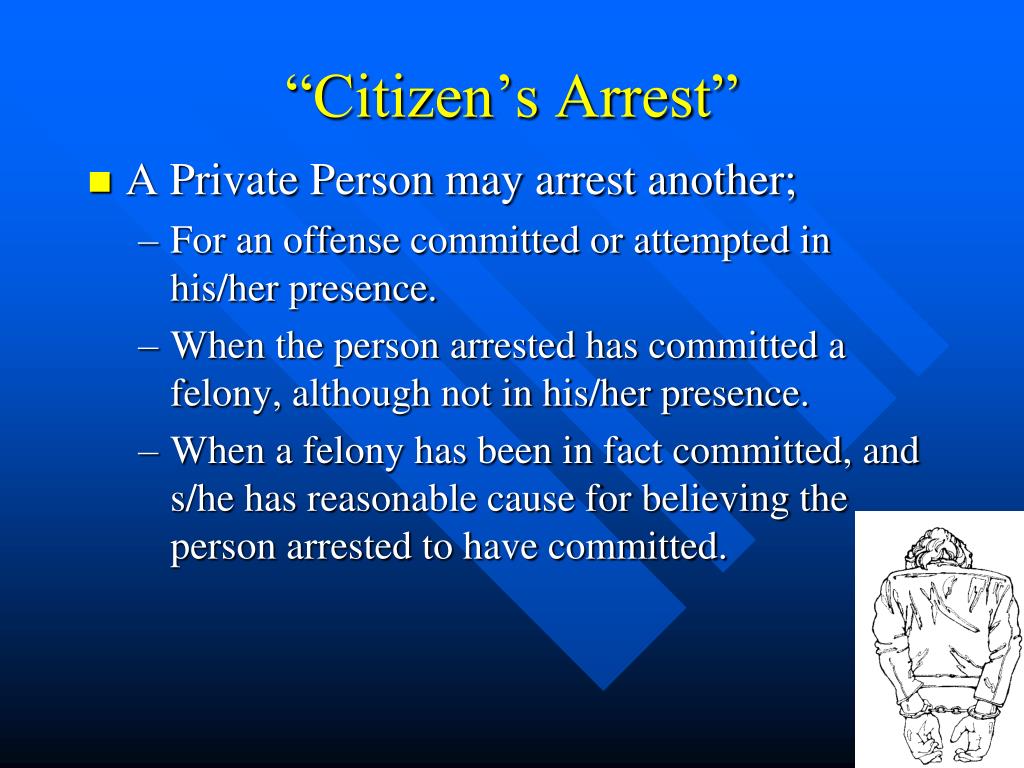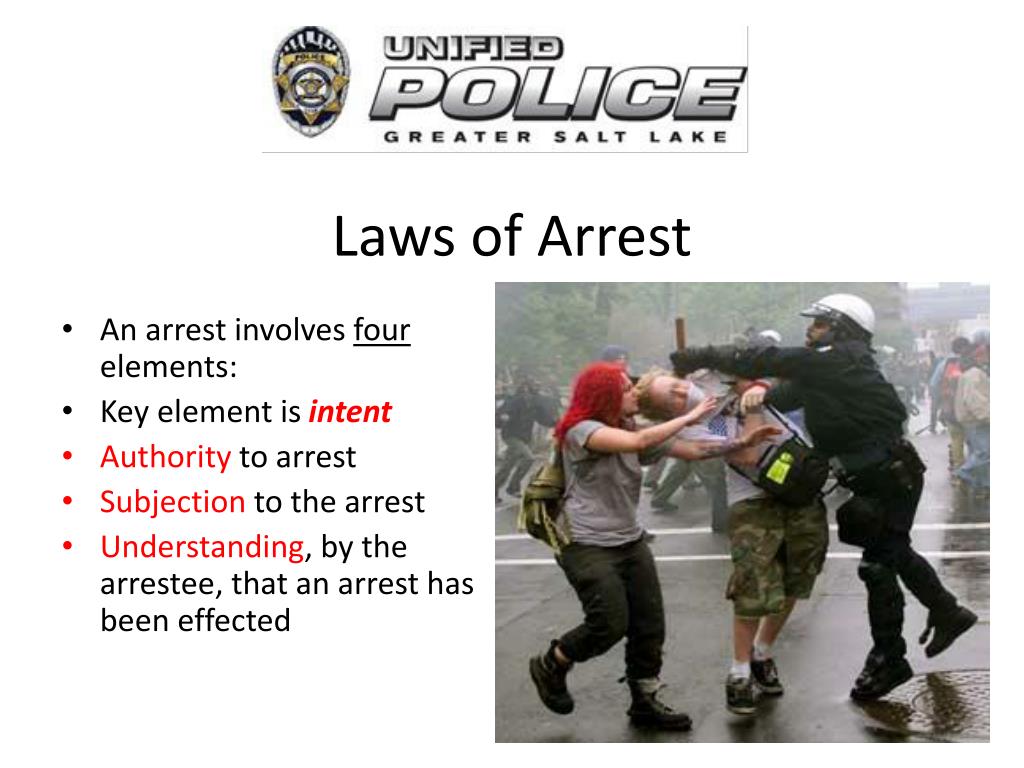Arrested Definition By Law - An arrest is the use of legal authority to deprive a person of their freedom of movement. Arrest is the apprehending or detaining of a person in order to answer for an alleged or suspected crime. To deprive one of his liberty by virtue of legal authority. Arrests can be made on both criminal charges and civil charges, although civil arrest is a drastic measure that is not looked upon with favor by. An arrest is generally made with an arrest warrant. Thelaw.com law dictionary & black's law dictionary 2nd ed. Common law dictates that investigatory detention refers to holding someone while a suspicious situation is being checked. Arrest the apprehending or detaining of the person, in order to be forthcoming to answer an alleged or suspected crime. For a full arrest to be lawful, law enforcement must have “probable cause”—a higher legal standard than.
Arrest is the apprehending or detaining of a person in order to answer for an alleged or suspected crime. An arrest is generally made with an arrest warrant. For a full arrest to be lawful, law enforcement must have “probable cause”—a higher legal standard than. Arrest the apprehending or detaining of the person, in order to be forthcoming to answer an alleged or suspected crime. An arrest is the use of legal authority to deprive a person of their freedom of movement. Common law dictates that investigatory detention refers to holding someone while a suspicious situation is being checked. Thelaw.com law dictionary & black's law dictionary 2nd ed. Arrests can be made on both criminal charges and civil charges, although civil arrest is a drastic measure that is not looked upon with favor by. To deprive one of his liberty by virtue of legal authority.
Arrest is the apprehending or detaining of a person in order to answer for an alleged or suspected crime. Thelaw.com law dictionary & black's law dictionary 2nd ed. Arrest the apprehending or detaining of the person, in order to be forthcoming to answer an alleged or suspected crime. To deprive one of his liberty by virtue of legal authority. Common law dictates that investigatory detention refers to holding someone while a suspicious situation is being checked. An arrest is the use of legal authority to deprive a person of their freedom of movement. An arrest is generally made with an arrest warrant. Arrests can be made on both criminal charges and civil charges, although civil arrest is a drastic measure that is not looked upon with favor by. For a full arrest to be lawful, law enforcement must have “probable cause”—a higher legal standard than.
Introduction to Criminal Justice ppt download
Arrest the apprehending or detaining of the person, in order to be forthcoming to answer an alleged or suspected crime. Arrest is the apprehending or detaining of a person in order to answer for an alleged or suspected crime. Arrests can be made on both criminal charges and civil charges, although civil arrest is a drastic measure that is not.
PPT Laws of Arrest PowerPoint Presentation, free download ID175124
Common law dictates that investigatory detention refers to holding someone while a suspicious situation is being checked. Arrests can be made on both criminal charges and civil charges, although civil arrest is a drastic measure that is not looked upon with favor by. An arrest is the use of legal authority to deprive a person of their freedom of movement..
PPT Powers of enforcement, human rights and the Constitution
Arrest the apprehending or detaining of the person, in order to be forthcoming to answer an alleged or suspected crime. Common law dictates that investigatory detention refers to holding someone while a suspicious situation is being checked. For a full arrest to be lawful, law enforcement must have “probable cause”—a higher legal standard than. To deprive one of his liberty.
Understanding Arrest vs. Conviction in Texas Jason English Law Firm
Arrest the apprehending or detaining of the person, in order to be forthcoming to answer an alleged or suspected crime. An arrest is the use of legal authority to deprive a person of their freedom of movement. For a full arrest to be lawful, law enforcement must have “probable cause”—a higher legal standard than. Common law dictates that investigatory detention.
PPT Laws of Arrest PowerPoint Presentation, free download ID175124
Arrests can be made on both criminal charges and civil charges, although civil arrest is a drastic measure that is not looked upon with favor by. Arrest the apprehending or detaining of the person, in order to be forthcoming to answer an alleged or suspected crime. Common law dictates that investigatory detention refers to holding someone while a suspicious situation.
Chapter 6 Laws of Arrest LawTech Custom Publishing, Inc. Copyright ppt
Arrest the apprehending or detaining of the person, in order to be forthcoming to answer an alleged or suspected crime. To deprive one of his liberty by virtue of legal authority. Thelaw.com law dictionary & black's law dictionary 2nd ed. For a full arrest to be lawful, law enforcement must have “probable cause”—a higher legal standard than. Common law dictates.
Legal term, definition, Arrest warrant YouTube
Common law dictates that investigatory detention refers to holding someone while a suspicious situation is being checked. Arrest is the apprehending or detaining of a person in order to answer for an alleged or suspected crime. An arrest is generally made with an arrest warrant. For a full arrest to be lawful, law enforcement must have “probable cause”—a higher legal.
Rights of Arrested Person Understanding the Law on Arrest and Detention
Arrests can be made on both criminal charges and civil charges, although civil arrest is a drastic measure that is not looked upon with favor by. Arrest the apprehending or detaining of the person, in order to be forthcoming to answer an alleged or suspected crime. Common law dictates that investigatory detention refers to holding someone while a suspicious situation.
LAWS OF ARREST LEARNING DOMAIN ppt video online download
An arrest is generally made with an arrest warrant. For a full arrest to be lawful, law enforcement must have “probable cause”—a higher legal standard than. To deprive one of his liberty by virtue of legal authority. An arrest is the use of legal authority to deprive a person of their freedom of movement. Arrests can be made on both.
PPT Chapter Nine PowerPoint Presentation, free download ID2356921
Arrests can be made on both criminal charges and civil charges, although civil arrest is a drastic measure that is not looked upon with favor by. Arrest the apprehending or detaining of the person, in order to be forthcoming to answer an alleged or suspected crime. An arrest is the use of legal authority to deprive a person of their.
An Arrest Is Generally Made With An Arrest Warrant.
For a full arrest to be lawful, law enforcement must have “probable cause”—a higher legal standard than. Thelaw.com law dictionary & black's law dictionary 2nd ed. To deprive one of his liberty by virtue of legal authority. Arrest is the apprehending or detaining of a person in order to answer for an alleged or suspected crime.
Common Law Dictates That Investigatory Detention Refers To Holding Someone While A Suspicious Situation Is Being Checked.
Arrests can be made on both criminal charges and civil charges, although civil arrest is a drastic measure that is not looked upon with favor by. Arrest the apprehending or detaining of the person, in order to be forthcoming to answer an alleged or suspected crime. An arrest is the use of legal authority to deprive a person of their freedom of movement.








.jpg)
